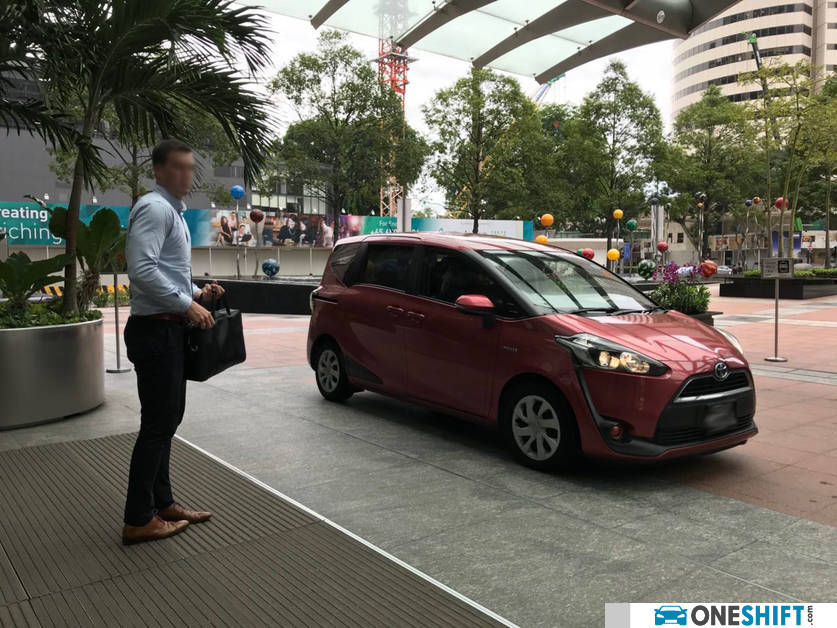Carpooling in Singapore - Is There Enough Regulation?
The popularity of carpooling services has increased in recent months, following Grab’s takeover of Uber’s Southeast Asia operations on May 7. Launched in November 2015, GrabHitch used to be a non-profit initiative by Grab to match private drivers with others travelling along the same route, until it announced earlier this month that it would impose a 10 per cent platform fee to keep the platform sustainable. Meanwhile, local carpooling app Ryde, which has been around since 2014, is trying to woo customers by offering attractive cashback incentives.

The popularity of carpooling services has increased in recent months, following Grab’s takeover of Uber’s Southeast Asia operations on May 7.
Launched in November 2015, GrabHitch used to be a non-profit initiative by Grab to match private drivers with others travelling along the same route, until it announced earlier this month that it would impose a 10 per cent platform fee to keep the platform sustainable. Meanwhile, local carpooling app Ryde, which has been around since 2014, is trying to woo customers by offering attractive cashback incentives.
For passengers, carpooling services such as GrabHitch or RydePool makes travelling more affordable, as the trip cost is primarily to cover the driver’s petrol costs. A typical ride from Ang Mo Kio to Jurong West can cost around S$23 and go up to S$30 during peak periods, which far exceeds the maximum amount (S$15) for a GrabHitch ride. For RydePool, the dynamic pricing system applies, so price fluctuates according to demand, but is still a cheaper alternative compared to private-hire car services such as JustGrab, RydeX or hailing a regular taxi.

Even though carpooling is legal in Singapore, drivers are limited to two carpooling trips a day. Furthermore, the fees collected for each carpooling trip should not exceed the costs incurred from making the trip. This is in accordance with the regulations under the Road Traffic Act, which came into effect in March 2015.
With stiff penalties such as a fine of up to S$3,000 and/or jail term of up to six months for offenders who flout the rules, one would think that carpooling in Singapore is well-regulated. However, upon closer scrutiny, GrabHitch drivers are allowed to stack multiple riders on a single trip.
To put it in perspective, a GrabHitch driver can input a route from Changi to Jurong and pick up a maximum of four passengers who are heading in the same direction. A GrabHitch ride from Changi to Jurong cost S$15 per pax, so there is a possibility that he can earn S$60. Even after the newly introduced 10 per cent platform fee, this works out to S$54. And this is only counted as one trip. If he inputs another route and makes a second trip by stacking riders in his car, the GrabHitch driver can easily recoup sufficient money to defray his petrol costs.
This is contrary to the statutes in the Road Traffic Act, which states that carpooling is not meant for profit.
"The amount or the value of any benefit in kind that the person collects from the passenger as payment does not exceed the cost and expenses incurred for the carriage of the passenger," it says.

The same applies for RydePool, which allows drivers to accept ad-hoc trip requests. Drivers stand a chance to earn more by driving with Ryde, as they only collect a 5 per cent commission and dish out attractive cashback rates such as S$12 bonus for every 12 unique trips (minimum fare S$7 per trip).
As carpooling picks up steam in Singapore, it is imperative that we close loopholes that can potentially be exploited. Here are our suggestions:
- The app should limit drivers from making more than two trips a day. I know of RydePool drivers who do more than two trips a day. Some of them even game the system by cancelling rides after accepting them, only to contact the rider privately. This is so that they can make more than two trips. Thus, the app should flag out drivers who cancel regularly and take necessary action against those suspected of fraudulent activities.
- Remove such programmes. While it serves to incentivise GrabHitch drivers from picking more passengers, it also means that they have to stack riders, especially if they want to reach the highest tier. Again, this goes against the Road Traffic Act regulation in that total payment must not exceed expenses incurred for the carriage of the passenger.
- Limit private-hire car drivers from being able to do unlimited GrabHitch or RydePool rides. As GrabHitch and RydePool are carpooling services, they should not be capitalised to generate income for private-hire car drivers since their main revenue source should be from ride-hailing services.
- Do not allow drivers to use both GrabHitch and RydePool at the same time. As drivers are only allowed to provide two carpooling trips per day, allowing the use of GrabHitch and RydePool effectively means that the driver can make four trips and can make a profit from it, which is not allowed.
- Drivers who use carpooling services should be required to take a similar vocational license that current private-hire car drivers do, so that passengers’ safety is enhanced, especially after several molestation cases arising from GrabHitch rides.
Credits:


Get the Best Price for your used car
from 500+ dealers in 24 hours

- Convenient and Hassle-Free
- Consumer Protection
Transparent Process
With No Obligation








